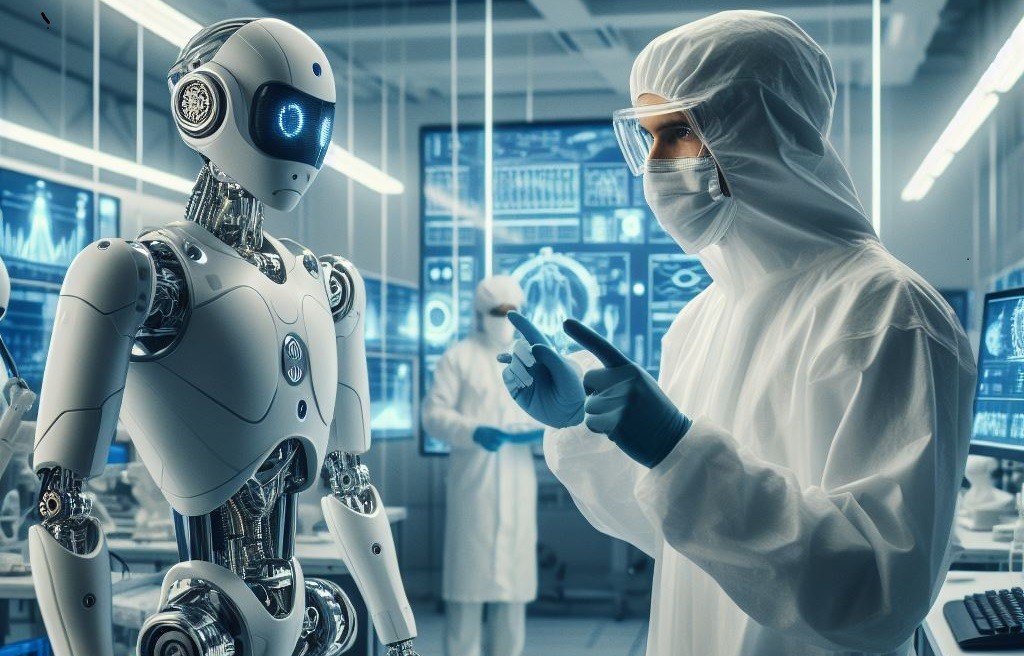Artificial intelligence. The words conjure images of sentient robots and dystopian futures. But the reality is far less dramatic – and far more transformative. AI is quietly revolutionizing the business world, reshaping the job market, and offering powerful new tools for boosting productivity. This isn’t about science fiction; it’s about the very real changes happening right now. So, will robots steal your job? The answer is more nuanced than a simple yes or no. Let’s dive in.
The Evolving Job Market: Adapt or Be Left Behind
The fear of automation replacing human jobs is understandable. History is filled with examples of technological advancements disrupting employment. However, AI isn’t just about replacing jobs; it’s about transforming them. Think of the shift from horse-drawn carriages to automobiles. Did cars eliminate transportation jobs? No, they changed them. We went from stable hands to mechanics, from carriage drivers to truck drivers, and created entirely new roles in manufacturing and infrastructure. Let’s see AI as a tool that has come to make work and life easier for everyone
AI is similar. While some routine tasks will be automated, new opportunities are emerging in areas like:
- AI Development & Maintenance: Building, training, and maintaining AI systems requires skilled professionals.
- Data Science & Analytics: Interpreting the vast amounts of data AI generates will be crucial for businesses.
- AI Ethics & Governance: Ensuring AI is used responsibly and ethically is a growing field.
- Creative Content & Strategy: While AI can generate content, human creativity and strategic thinking are still essential.
Real-World Example: The Rise of the “Prompt Engineer”
Consider the role of a “Prompt Engineer.” This emerging profession focuses on crafting effective prompts for AI models like ChatGPT to generate desired outputs. It requires a blend of technical understanding, creative thinking, and domain expertise. This job didn’t exist a few years ago, but it’s becoming increasingly valuable as businesses leverage AI for content creation, code generation, and more. This is just one example of how AI is creating new jobs.
AI Tools for Productivity: Supercharge Your Work
Beyond job creation, AI offers a wealth of tools to boost productivity and efficiency. Here are a few examples:
- Automated Email & Scheduling: Tools like Calendly and Boomerang use AI to streamline scheduling and email management, freeing up time for more important tasks. (Demo: Show a quick screen recording of Calendly automating a meeting setup.)
- AI-Powered Writing Assistants: Grammarly and Jasper.ai can help improve writing quality, generate content ideas, and even translate languages. (Case Study: Showcase how a marketing team used Jasper.ai to create website copy, saving time and resources.)
- Personalized Learning Platforms: AI-powered platforms can tailor learning experiences to individual needs, making training and development more effective. (Example: Mention a specific platform used by a company for employee upskilling.)
- Data Analysis & Visualization Tools: AI can analyze large datasets and generate insightful visualizations, helping businesses make better decisions. (Demo: Show a simplified example of data visualization using a tool like Tableau or Google Data Studio.)
Will Robots Take Your Job? A Practical Approach
The best way to prepare for the AI-driven future is to embrace lifelong learning and focus on developing skills that are difficult to automate:
- Critical Thinking & Problem Solving: AI can process data, but humans are needed to interpret it and make strategic decisions.
- Creativity & Innovation: Generating new ideas and approaches is a uniquely human skill.
- Communication & Collaboration: Working effectively with others is essential in any workplace.
- Emotional Intelligence & Empathy: Understanding and responding to human emotions is crucial for leadership and teamwork.
Actionable Steps:
- Identify your transferable skills: What skills do you have that are valuable in the changing job market?
- Explore AI tools in your field: Experiment with AI tools that can automate routine tasks and boost your productivity.
- Focus on developing uniquely human skills: Invest in training and development that enhances your critical thinking, creativity, and communication skills.
- Embrace lifelong learning: Stay up-to-date with the latest trends and technologies in your industry.
The Future is Intelligent:
AI is not a threat to be feared, but a powerful tool to be embraced. By understanding its potential and adapting to the changing landscape, you can not only survive but thrive in the age of AI. The future of work is not about robots replacing humans; it’s about humans and AI working together to achieve more than ever before. It’s time to get on board.

